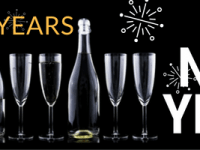…pause for effect

Ilyse Robbins, actress, director, choreographer, teacher, and presentation skills coach at Mohr Collaborative, guest blogs today to share her opinion on whether “pausing for effect” has any effect at all.
When I read Teddy Wayne’s column about “NPR Voice” recently, I related to it and…cringed. (please read the article and you’ll understand both my ellipses and the italics.)
The “pause for effect” has become quite common both in speech and in writing. The pause asks the audience to understand how much the writer or speaker feels in this moment or how much he or she is thinking about what to say next. I find it to be extremely selfish.
This pregnant pause is solely about the author: It does not include the audience in any way other than for us to appreciate the speaker or writer and admire them all the more.
In my training as an actor, I was taught to shift focus away from myself and put it instead on my fellow actors: There is more acting in reacting. This is hardest to do when delivering a monologue, which is often what we are doing when we present for business. So how do we shift focus away from ourselves when we are making a presentation in front of 50 people? 100? 1000? My answer is always the same: Create a dialogue, a discussion, a conversation.
Rarely when we are having a true conversation do we add a thoughtful… pause. Sometimes it happens naturally when we are thinking, but an engaging dialogue makes us think more quickly. If we pause, it is usually so that we make sure that the listener is still following us:
The pause should not be for the speaker; it should be for the benefit of the listener.
This is the big difference. We are shifting the focus from ourselves by giving it to the other person, making them the more important part of the equation.
This is key when making a business presentation. Quite often I am working with executives who will be presenting a new idea to their superiors. The audience has the power to approve the proposal or kill it. The presentation is important, but the audience is more important.
I tell the people I work with to use pauses sparingly. If you have something that is extremely important for your audience to hear, something that you might even repeat, a pause for the audience to digest the information may be in order. But mainly I repeat what my teachers taught me: Too many pauses gives everything the same weight; makes everything too precious. You need to earn… your pauses.




